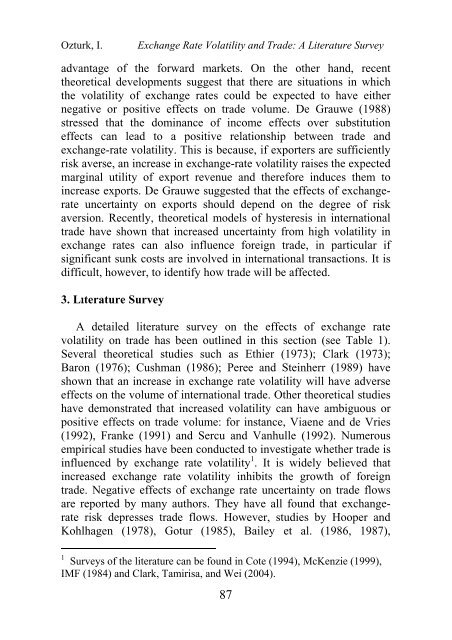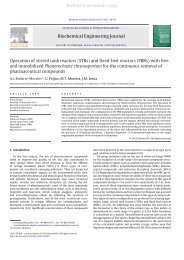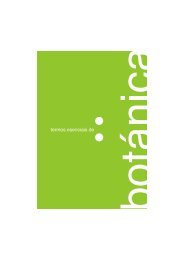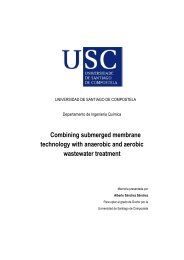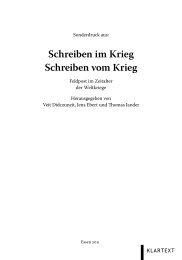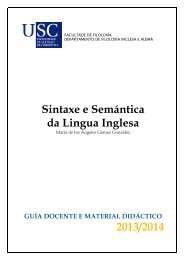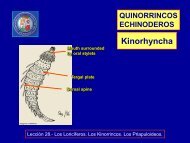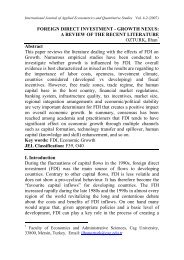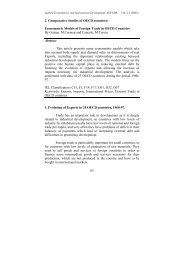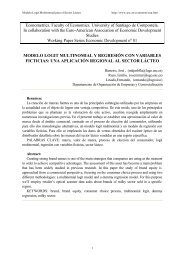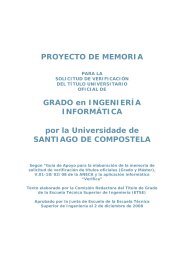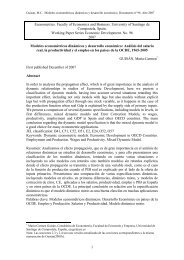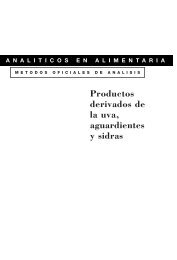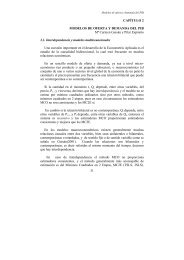EXCHANGE RATE VOLATILITY AND TRADE: A LITERATURE ...
EXCHANGE RATE VOLATILITY AND TRADE: A LITERATURE ...
EXCHANGE RATE VOLATILITY AND TRADE: A LITERATURE ...
Create successful ePaper yourself
Turn your PDF publications into a flip-book with our unique Google optimized e-Paper software.
Ozturk, I.<br />
Exchange Rate Volatility and Trade: A Literature Survey<br />
advantage of the forward markets. On the other hand, recent<br />
theoretical developments suggest that there are situations in which<br />
the volatility of exchange rates could be expected to have either<br />
negative or positive effects on trade volume. De Grauwe (1988)<br />
stressed that the dominance of income effects over substitution<br />
effects can lead to a positive relationship between trade and<br />
exchange-rate volatility. This is because, if exporters are sufficiently<br />
risk averse, an increase in exchange-rate volatility raises the expected<br />
marginal utility of export revenue and therefore induces them to<br />
increase exports. De Grauwe suggested that the effects of exchangerate<br />
uncertainty on exports should depend on the degree of risk<br />
aversion. Recently, theoretical models of hysteresis in international<br />
trade have shown that increased uncertainty from high volatility in<br />
exchange rates can also influence foreign trade, in particular if<br />
significant sunk costs are involved in international transactions. It is<br />
difficult, however, to identify how trade will be affected.<br />
3. Lıterature Survey<br />
A detailed literature survey on the effects of exchange rate<br />
volatility on trade has been outlined in this section (see Table 1).<br />
Several theoretical studies such as Ethier (1973); Clark (1973);<br />
Baron (1976); Cushman (1986); Peree and Steinherr (1989) have<br />
shown that an increase in exchange rate volatility will have adverse<br />
effects on the volume of international trade. Other theoretical studies<br />
have demonstrated that increased volatility can have ambiguous or<br />
positive effects on trade volume: for instance, Viaene and de Vries<br />
(1992), Franke (1991) and Sercu and Vanhulle (1992). Numerous<br />
empirical studies have been conducted to investigate whether trade is<br />
influenced by exchange rate volatility 1 . It is widely believed that<br />
increased exchange rate volatility inhibits the growth of foreign<br />
trade. Negative effects of exchange rate uncertainty on trade flows<br />
are reported by many authors. They have all found that exchangerate<br />
risk depresses trade flows. However, studies by Hooper and<br />
Kohlhagen (1978), Gotur (1985), Bailey et al. (1986, 1987),<br />
1 Surveys of the literature can be found in Cote (1994), McKenzie (1999),<br />
IMF (1984) and Clark, Tamirisa, and Wei (2004).<br />
87


